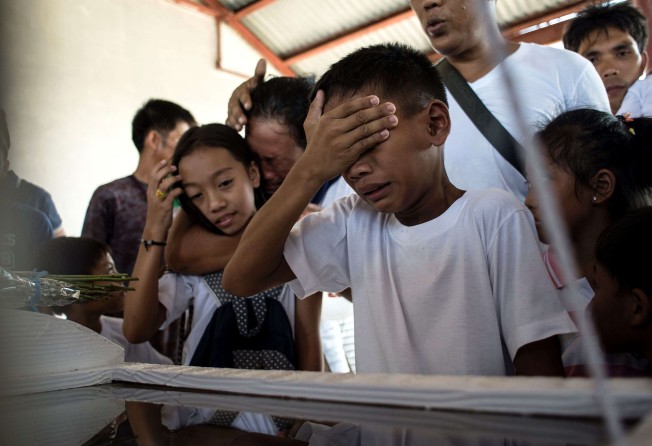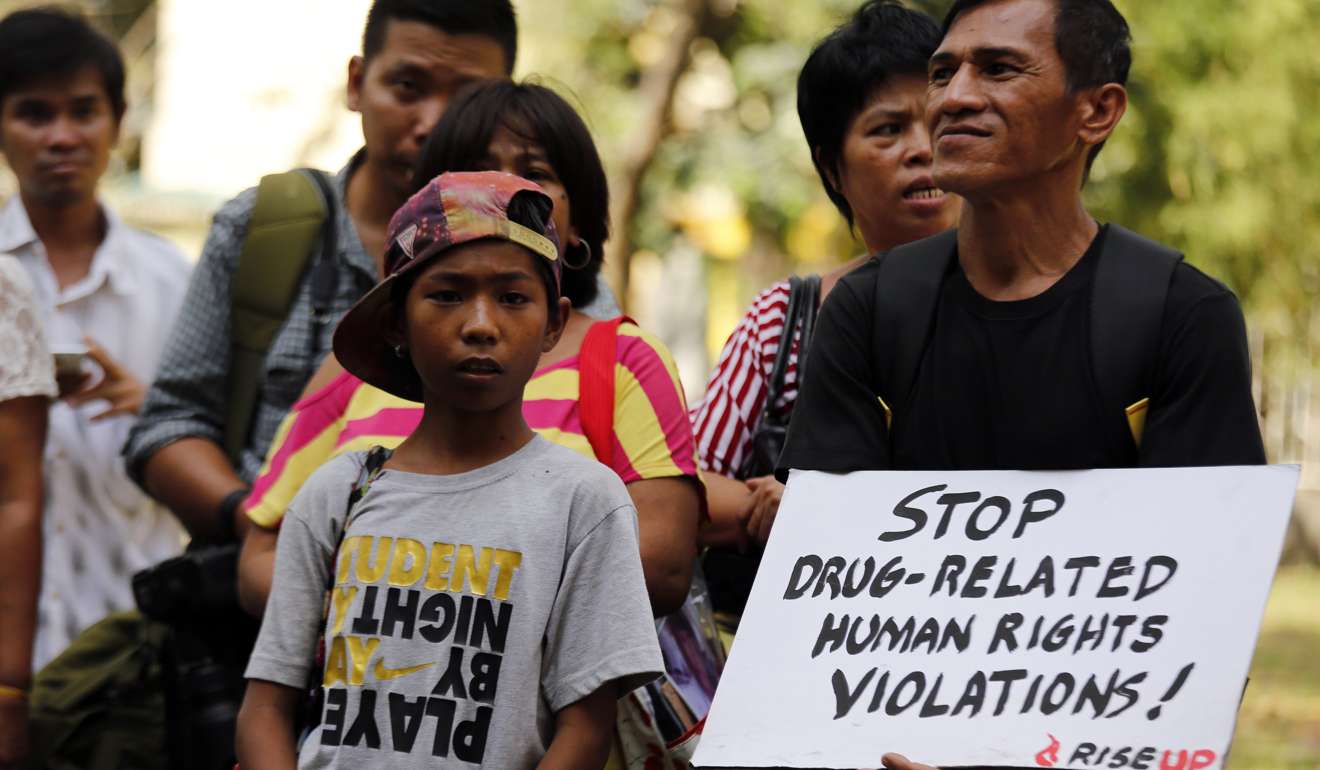Duterte’s war on drugs is leaving children to pay the price, but not asking why they turned to crime
Reuben James Barrete calls on the Philippine government to delve into the socio-economic and family-based risks that push children from urban poor communities into drug trade and trafficking, and find ways to stop their marginalisation

Rodrigo Duterte’s “war on drugs” has been his flagship campaign since he ran for the presidency, to curtail the drug trade in the Philippines. More than 7,000 deaths have been linked to anti-drug operations since he took office last June.
However, the campaign has not only killed alleged drug addicts, it has also left children as orphans. Worse, some have become victims, shot by stray bullets or caught in the middle of an anti-drug operation.
The non-government Children’s Legal Rights and Development Centre said at least 31 minors have been killed by police and vigilantes since the campaign began; some were direct targets, while others were innocent. In an interview, Duterte referred to the deaths of innocent children as “collateral damage”.
Most of these children were left orphaned or worse, still traumatised from witnessing the killings of their loved ones or parents. According to data provided by the Women and Children Protection Centre of the Philippine National Police, a total of 26,415 children allegedly involved in the use, sale or transport of drugs had surrendered to police as of January.
In response to this alarming situation of children being used in the drug trade, the Philippine Congress proposed a bill to lower the age of criminality for children – from 15 years to nine – instead of facilitating responsive measures to help such children get out of this unwanted circumstance.
The death toll of children affected by the drug war should never be disregarded. And lives matter regardless of socio-economic background.
According to Amnesty International, a considerable concentration of drug operations is conducted among the urban poor. In their investigation, a police officer in an anti-illegal drugs unit in Metro Manila said they are paid 8,000 pesos (HK$1,256) to 15,000 pesos under the table for killing alleged drug offenders.
Children in this situation are victims of poverty and social inequality. The Philippine Statistics Office and Unicef say while there have been improvements in the well-being of children in the Philippines, there are still areas where performance has been stagnant.
In 2009, around 13.4 million (or 36 per cent) of all children aged below 18 were considered income poor, up by around 2.3 million from 2003. Because of the lack of inclusive economic growth and continued high population growth, the number of poor children is not expected to significantly go down in the next few years. In fact, the increasing frequency and severity of natural calamities will see more children face poverty when disasters wipe out their families’ productive assets.
The data shows that despite major improvements in battling child poverty, it is still a challenging task – issues like child labour, high school drop-out rates, and limited access to basic social services and sanitation should be addressed. The response of the present administration in fighting poverty is through its war on drugs; but it never deeply examined why children are used as instruments in drug trade and trafficking. What pushed them to involve themselves in criminal acts?
The issue is whether there are channels of socio-economic opportunities to keep children away from environmental factors that lead to criminal behaviour. Families in urban poor communities are vulnerable and marginalised, which increases the probability of problematic behaviour.

Rights groups have documented at least 1,400 killings in Davao that they contend had been carried out by death squads since 1998, when Duterte was city mayor. The groups claim that those murdered were drug users, petty criminals and street children. If this becomes a cycle wherein violence is inflicted without solving the root cause, the issue will never be resolved.
The Duterte administration should consider strong socio-economic interventions with respect to vulnerable families and marginalised children. Violence doesn’t solve social infirmities but pushes the vulnerable further to the margin.
Reuben James Barrete is a development worker focusing on human rights and social protection. He is finishing his master’s degree in international studies at the University of the Philippines